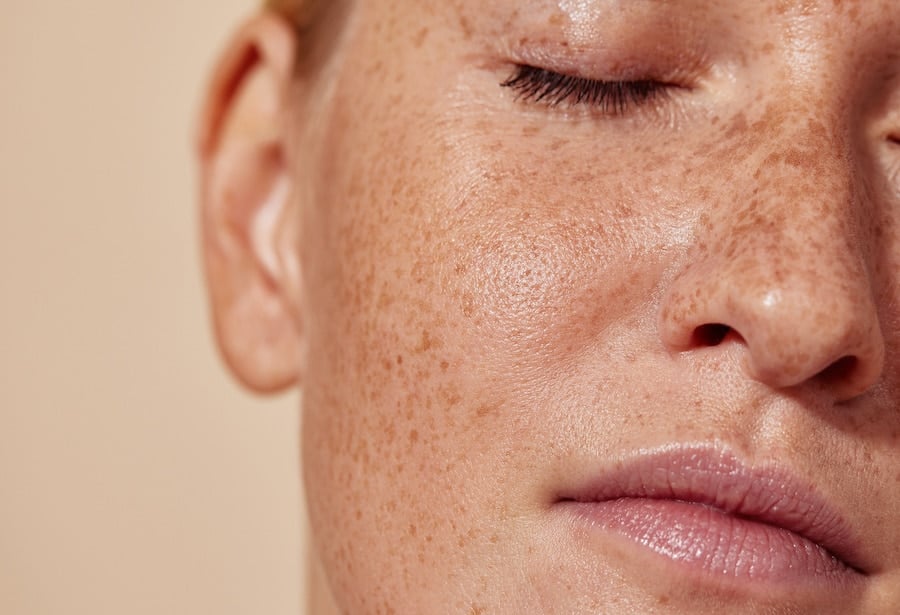Melasma is a common skin condition that causes dark patches, usually on the face, due to an overproduction of melanin. This condition often affects women, particularly during pregnancy or as a result of hormonal changes. Hydroquinone is a popular and effective treatment for melasma, and it works by lightening these hyperpigmented areas. Hydroquinone is a powerful topical agent that inhibits melanin production, thereby helping to fade the dark spots and even out skin tone. In this article, we will explore how hydroquinone works for Melasma Treatment(علاج الكلف), its benefits, risks, importance, and answers to frequently asked questions.
Importance of Treating Melasma:
Melasma can affect an individual's confidence and self-esteem due to its visible nature, especially on the face. In addition to the emotional impact, untreated melasma can also worsen over time, making it more difficult to treat. For individuals looking to restore an even skin tone, hydroquinone offers a reliable option for lightening dark spots. It is often recommended by dermatologists as a first-line treatment for melasma, especially when the condition does not improve with lifestyle modifications or sun protection.
How Hydroquinone Works for Melasma?
Hydroquinone works by inhibiting the enzyme tyrosinase, which plays a crucial role in the production of melanin—the pigment responsible for skin color. By blocking tyrosinase activity, hydroquinone prevents the formation of excess melanin in the skin, resulting in lighter, more even skin tones. This makes it particularly effective in treating hyperpigmentation associated with melasma. Hydroquinone is typically available in different strengths, ranging from 2% (over-the-counter) to higher concentrations (prescription-strength) for more severe cases of melasma.
Key Mechanism:
- Inhibits Tyrosinase: Blocks melanin production, reducing dark spots.
- Fades Hyperpigmentation: Helps lighten areas affected by melasma.
- Restores Even Skin Tone: Promotes a balanced complexion with consistent use.
Benefits of Hydroquinone for Melasma:
There are several advantages to using hydroquinone for treating melasma. These benefits make it a favored treatment option for many individuals.
- Effective for Lightening Dark Spots:
Hydroquinone is one of the most effective ingredients in dermatology for reducing dark patches and hyperpigmentation, particularly in melasma cases.
- Fast Results:
When used consistently, hydroquinone can show visible improvement in as little as four to six weeks. This relatively quick action makes it a popular choice for those seeking fast results.
- Easy to Use:
Hydroquinone comes in various forms such as creams, gels, and lotions, making it easy to apply directly to the affected areas. The topical application ensures targeted treatment.
- Widely Available:
Hydroquinone is widely available in both prescription and over-the-counter formulations, offering accessibility for most individuals seeking treatment.
Risks of Using Hydroquinone:
While hydroquinone is a highly effective treatment, it does come with some potential risks that should be considered before use.
- Skin Irritation:
Hydroquinone can cause skin irritation in some people, leading to redness, dryness, or itching. If irritation occurs, it is important to discontinue use and consult a dermatologist.
- Risk of Ochronosis:
Long-term use of high concentrations of hydroquinone (typically above 4%) can lead to a rare condition called ochronosis, which results in bluish-black discoloration of the skin.
- Sun Sensitivity:
Using hydroquinone can increase sensitivity to the sun, making the skin more prone to sunburn and further pigmentation. It is essential to apply sunscreen daily when using hydroquinone to protect the skin.
- Not Suitable for Everyone:
Hydroquinone is not recommended for pregnant or breastfeeding women. It is also contraindicated for individuals with sensitive skin or allergies to hydroquinone.
Frequently Asked Questions (FAQs):
1. How long does it take for hydroquinone to work for melasma?
Hydroquinone typically shows noticeable results within 4 to 6 weeks of consistent use, though it may take up to 3 months for full results to appear.
2. Can I use hydroquinone if I have sensitive skin?
People with sensitive skin should proceed with caution and consult a dermatologist before using hydroquinone. A patch test may be necessary to check for adverse reactions.
3. Is hydroquinone safe for long-term use?
Hydroquinone is generally safe for short-term use, but prolonged use (over several months) may cause side effects like ochronosis. It’s best to use it under medical supervision and only as long as necessary.
4. Can I use hydroquinone with other skincare products?
Hydroquinone can be used alongside other skincare products, but it should not be mixed with exfoliants, retinoids, or products containing alcohol, as these may increase irritation. Always check with your dermatologist before combining treatments.
Conclusion:
Hydroquinone is a powerful and effective treatment for melasma, helping to fade dark patches and restore an even skin tone. It works by inhibiting melanin production and provides visible results within a few weeks. While it offers many benefits, it is important to be aware of the potential risks, including skin irritation and sun sensitivity. Always consult with a dermatologist before starting any treatment with hydroquinone, especially if you have sensitive skin or other underlying conditions. With proper use and sun protection, hydroquinone can help you achieve clearer, more radiant skin, making it a reliable option for melasma management.

